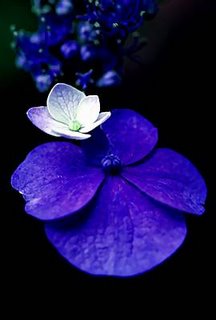From The Wordsworth Dictionary of Foreign Words in English by John Ayto: A haiku is a Japanese poem consisting of only three lines, containing respectively five, seven, and five syllables. The genre appeared in the 16th century, and was popularized by the poet Basho in the 17th century. Spare to the point of starkness, haiku traditionally take an image from the natural world (eg the flight of a crane) and leave it suspended in the mind, like a raindrop at the tip of a leaf, so that its subtle allusions may work on the imagination. The Japanese term haiku is a compound, formed from hai 'amusement' and ku 'sentence, verse'.
It is first recorded in English at the end of the 19th century. A hokku was originally the opening half-line of a linked series of haiku, but the term is now used synonymously with haiku. Haiku should not be confused with tanka, which denotes a five-line Japanese poem of five, seven, five, seven, and five syllables respectively (it is a compound of Japanese tan 'short' and ka 'song').
 Ajisai (hydrangea) Nara, Lee Dobson
Ajisai (hydrangea) Nara, Lee DobsonAn autumn wind
More white
Than the rocks in the rocky mountain.
old pond . . .
a frog leaps in
water's sound
-- Matsuo Bashö (1644-1694)


No comments:
Post a Comment